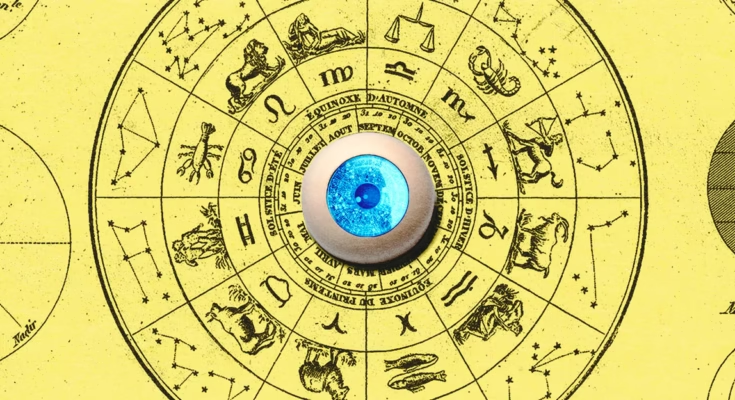In the past few years, astrology has crossed its limitations once found in cryptic newspaper horoscopes and hours of consultation with human astrologers. Today, people turn to AI-powered astrology chatbots whenever they are in need of quick, round-the-clock guidance – this accurate readiness of astrological guidance and insights is what is becoming the new norm for spiritual seekers, self-reflectors, and ones who are curious about themselves.
At any given point in the day, all you will need to do is access your chatbot app and ask it about what Mars in Cancer would mean for your job or how you should prepare for the upcoming Mercury retrograde. And the best part? The application will not just answer you but also remember the conversation, analyse it and customise all future responses based entirely on the conversation you had with the application.
But what shapes this ease? In this article, we will explore the rise of AI astrology apps, the technology and psychology behind them, and what it means for the future of astrology in the digital space.
What is Driving the Rise in Popularity?
It is very difficult to put your finger on one reason that is driving the rise of AI astrology chatbots; the trifecta it operates on – technology, timing, and human behaviour is what has caused a monumental shift in the traditional astrology space.
Accessibility is the biggest driver for AI astrology chatbots’ growing popularity. Unlike the traditional astrologers who ask you to make appointments or give a certain fee, chatbots offer the same, if not better, experience for free or at a very low cost, that too from the tap of a button. For a generation that thrives on on-demand, this level of accessibility feels absolutely organic.
Next comes personalisation. These chatbots are designed not just to give generic insights but extremely personalised horoscope readings driven by birth data – time, date, and location, which help generate detailed natal charts. Using these, algorithms offer guidance that has been tailored according to the planetary placements, transits, and emotional patterns that can be gathered through the interaction history.
Then we have social sharing. A lot of apps encourage their users to post their daily vibe check-ins or compatibility findings, turning their astrology sessions into a social language and, in turn, a viral loop, which the more people share, the more others would want to try for themselves.
Finally, there is also the power of anonymity – users tend to feel very safe when exploring their emotions with a chatbot instead of a human, especially because AI does not judge, dismiss, or interrupt their concerns.
How Do These AI Chatbots Work?
Irrespective of how an AI astrology chatbot app is loaded, its backbone is identical – a combination of traditional astrology databases, predictive modelling, and natural language processing models. The majority of these platforms work on an astrological engine that understands how to calculate birth charts with the help of ephemeris data, patterns that chart the position of celestial bodies over a period of time. With this as a base, the app creators layer on multiple AI capabilities.
- Natural Language Processing – The technology enables the AI astrology chatbot to analyse and conversationally generate text, meaning instead of saying something very technical, such as transiting Mars square natal Venus, it could say, “you sound blocked today, like your energy is running into a wall.
- Sentiment analysis – A number of chatbots tend to study journal entries or questions to identify users’ moods and then adjust the response accordingly.
- Machine learning – Over a period of time, the chatbot learns which content you are more likely to interact with, topics you keep revisiting, and the stages where you interact with the app. Based on these learnings, the app is then able to shape future interactions.
- Context retention – A series of advanced chatbots are designed to ‘remember’ previous conversations and their context, enabling a feeling of continuity when the user visits the app after a long time. This is the stage where the experience transforms into a relationship between the app and the user.
What is Causing User retention in AI astrology Apps?
Understanding how AI chatbots work on technological grounds is only one side of the coin; it is equally important to understand the human psyche that makes them repeat users of these chatbot apps. Let’s look into that.
These apps build a habit loop in their design, meaning they give users daily readings, notifications aligned with their celestial phase, and even random check-ins informing people how their planetary alignments are moving. This steady, predictable rhythm turns into rituals in no time. Next, we have emotional validation, even though the advice is vague. Prompts like ‘you are tired because the moon is in Saturn’ are not just comforting but also reassuring, especially when life is very chaotic and unstable.
The AI chatbots also play a coaching role, with features helping users set an intention or breathe before responding, which tends to elevate the app’s role from that of a direct application to a self-regulation tool. This guiding or mentoring ability of the chatbots plays a massive role in making users loyal.
Lastly, there is the gamified version of the application. The users can track planetary transits, unlock new features, or even share their compatibility scores with friends, making astrology not just a siloed environment but an ecosystem.
All of this together is what makes AI astrology chatbots sticky – something that would keep users coming back for personalised experiences.
What are the Limitations of These AI Astrology Chats?
While the chat services offer unmatched accessibility and personalisation, there are some limitations on both technical and cultural grounds that the apps still need to overcome before they get a chance at becoming mainstream.
1. Language barriers – a majority of these apps are designed to be English-dominant, which restricts global users who already have access to human astrologers from using the application as often as they could otherwise.
2. Cultural erasure – The astrology space is huge, and while Western astrology typically dominates the space, other fields like Vedic, Chinese, Mayan, or other forms of astrology like Tarot, Palm reading, Numerology, etc, get sidelined.
3. Data bias – If the training data is inclined towards specific demographics, the AI astrology chatbots fail to resonate with the other segment of users – this, in turn, makes these apps lose the plot of why they were built in the first place.
4. Tech literacy – Not every person, especially in the 45+ age bracket, is comfortable with working around AI astrology chat tools, and the people who otherwise would benefit most from them become ones who are least likely to use them.
What Could the Future Look Like for AI Astrology?
The limitations that we covered in the last section make one thing clear: The evolution of AI astrology chat is far from over. With natural language models becoming sophisticated and emotionally accurate, we might soon see a new wave of AI astrologers come in with deeper, nuanced conversations, one that sounds more like a spiritual guide.
One of the evolution areas can be hyper-personalisation, with millions of data points at their disposal, the AI chatbots should detect complex behavioural and emotional patterns and customise advice to users’ mental health, relationship dynamics, or existential questions. Voice interactions can also be a game-changing move. Imagine a user asking the chatbot, “What does my day look like based on my birth chart?” – and it comes back with a contextually-aware, grounded answer in a coach-like tone.
There is also a success probability with wearable integrations. An AI astrology app that can track users’ biometric data – sleep cycles, stress, and heart rate – could easily cross-reference the physical state with celestial positions to offer them a multidimensional insight.
The most exciting potential that we see happening is cross-cultural expansion. AI astrology chat platforms could incorporate multiple astrological fields and systems to enable users to find something they resonate with the most, while also opening the doors for global expansion of the platform.
Conclusion
This rise in AI astrology chat services is not just a trend – it is a shift that is seamlessly connecting ancient knowledge with digital space. For the industry, it means that the astrologers now have an extra hand to do the heavy lifting as they focus on the emotional, intuitive aspect of readings. For users, on the other hand, it is now important to understand that the ‘mentor’ they are interacting with could be an AI, and so they should treat every insight they get as a guiding light and not gospel.
We are only at the beginning of a transformation. As the stars continuously move and bring remarkable shifts so would the algorithms.




